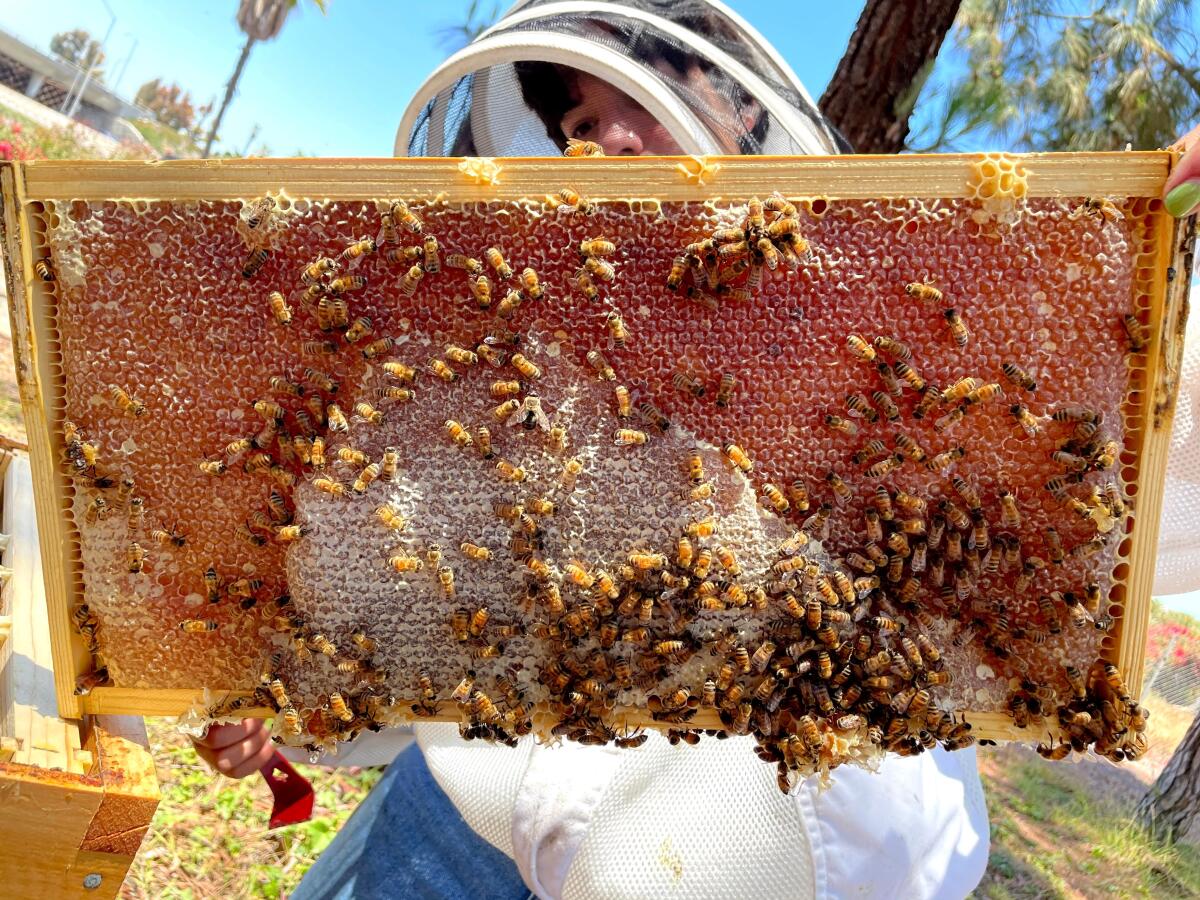
To the editor: As a beekeeper with more than 40 years of experience, I was astonished to see the anti-beekeeping letter from a People for the Ethical Treatment of Animals staff member. The analogy she used, of theft of a family’s canned goods, is false.
In wildflower-rich places like much of California, bees have the capacity to store a tremendous amount of surplus honey. This is made possible by the beekeeper’s careful management of the hive.
Periodically, the beekeeper removes that surplus honey. The beekeeper bottles that surplus honey, storing it for human use, while leaving honey in the hive for future use by the bees.
Beekeeping is the careful management of an insect that produces honey, a substance that makes our lives sweeter. Without beekeeping, not only would we not have honey, we would also not have at least one-third of our food supplies. Pollination by honey bees is responsible for everything from beef (alfalfa is bee-pollinated) to watermelons.
The skewed viewpoint by members of PETA is dangerous. It is anti-science and harmful to our food supplies. The vegan lifestyle promoted by PETA is highly dependent on managed beekeeping, as honey bees pollinate many, if not most, of our fruits, seeds, nuts and vegetables.
Nancy Steele, Altadena